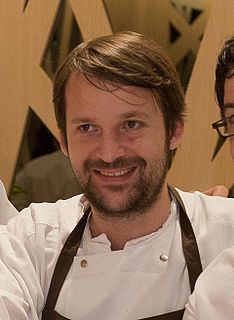A Quote by Ezra Taft Benson
Food production is just one part of the repeated emphasis that you store a provision of food which will last for at least a year wherever it is legally permissible to do so.
Related Quotes
The counsel to have a year's supply of basic food, clothing, and commodities was given fifty years ago and has been repeated many times since. Every father and mother are the family's store keepers. They should store whatever their own family would like to have in the case of an emergency...store a year's supply...that might keep us form starving in case of emergency.
Let me say two things about the costs - one is that there are detailed studies that show this, this is what some of the Stanford studies show, in fact, that we get so healthier, so much more healthy, when we eliminate fossil fuel pollution - 200,000 [fewer] premature deaths a year for example. And that's just the death part of it. Not to mention the asthma part of it, the heart attacks and the strokes and the cancers. And we also call for a healthy food system that prioritizes sustainable healthy local food production.
[I]t's an honor to be a food stamp president. Food stamps feed the hungry. Food stamps save the children. Food stamps help the farmer. Food stamps help the truck driver. Food stamps help the warehouse. Food stamps help the store. Food stamps hire people and feed people. Food stamps save people from starvation and malnutrition. ... Give President Barack Obama a big hand. Show your love. Show your appreciation.
Personally, I have been very impressed by the slow food movement. It is about celebrating the culture of food, of sharing the extraordinary knowledge, developed over millennia, of the traditions involved with quality food production, of the sheer joy and pleasure of consuming food together. Especially within the context of family life, this has to be one of the highest forms of cultural activity.
I do think we have a food problem. In 2006, which is the year for which we have the latest data, 35.5 million Americans were food insecure. That means there are 35.5 million Americans who are so hard up at some point during the year that they didn't know where their next meal was coming from. That's a lot of Americans. They don't get reported very much because there's nothing spectacular about people skipping a meal because they're poor. The media tends to ignore that, just as it ignores the sort of chronic food shortages elsewhere in the world.
Anybody interested in solving, rather than profiting from, the problems of food production and distribution will see that in the long run the safest food supply is a local food supply, not a supply that is dependent on a global economy. Nations and regions within nations must be left free and should be encouraged to develop the local food economies that best suit local needs and local conditions.
The traditional roots of Scandinavian cuisine are not that spectacular, to say the least. When we write about the traditions that we are inspired by, it's more techniques like smoking, preserving. Many of them are not made to make food delicious; they're just around so that you can make food last through the winter. There isn't a great deal of tradition to tap into.









































